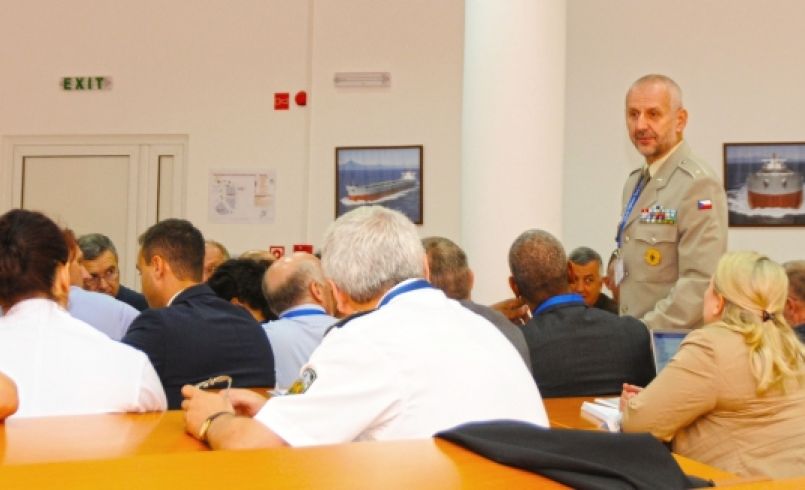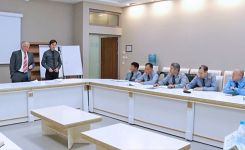- Partnership for Peace Consortium of Defense Aca...
- Senior defense educators and experts convene to...
Senior defense educators and experts convene to discuss partner nation capacity building
From 28 June to 1 July, a 58 person strong team of defense education leaders from 19 countries and 41 institutions convened at the Nikola Vaptsarov Naval Academy of Bulgaria for the fifth annual NATO Functional Clearing House, and concurrent meeting of the Education Development Working Group (EDWG).
This annual programmatic review provides the experts and country team leaders an opportunity to discuss the status of their programs, evaluate progress, and reach out to other members of the group and their networks for support. At the heart of the program is the mission to support partner nations with the modernization of their defense education institutions.
Deputy Minister of Defense of Bulgaria, Mr. Dimitar Kyumyurdzhiev, welcomed the team of experts, and highlighted the importance of their mission. “As part of the activities of the Partnership for Peace Consortium, the Defense Education Enhancement Program is aimed at professionalization of the officer and NCO corps and defense officials of partner countries, making their defense education institutions compatible with NATO defense education standards and values. The strategic goal is through military education to develop a common military culture and perception in the neighboring regions, thus contributing to the regional security and stability. The DEEP combines in a unique way the Alliance multilateral framework with the advantages of the direct bilateral school-to-school cooperation. Initiated in 2007 the DEEP now has 13 beneficent partner countries on 3 continents.”
The Defense Education Enhancement Program (DEEP) provides partner countries with access to expert consulting from senior educators, to build, modernize, and reform their national defense institutions as requested. The process allows partners to tap-into a vast knowledge base, allowing them to learn from the best practices of other nations, to develop a system that fits their own national objectives for advanced defense education.
“This meeting is an opportunity for us to directly collaborate with colleagues and elaborate upon the projects we are collectively engaged in -- everyone here can draw upon the expert advice of this team to aide the mission” said Dr. David Emelifeonwu, Defence Education Outreach Director, Canadian Defence Academy. Dr. Emelifeonwu is also the DEEP Reference Curriculum Development Team Leader. A critical aspect of the DEEP program is the development of reference curricula, which are designed to be shared, and tailored to suit the needs of countries seeking to adopt a curricula. “We are currently in the final stages of editing for a new Counter Insurgency Reference Curricula. Earlier this week in Paris, the writers of this curricula met to discuss the layout of the chapters and put the finishing touches on the product. In this meeting some of the [DEEP] country leads indicated this will be a sought after manuscript ” said Dr. Emelifeonwu.
The event was organized in conjunction with PfPC operations staff, NATO international staff, as well as several Partnership Training and Education Centres (PTECs).



